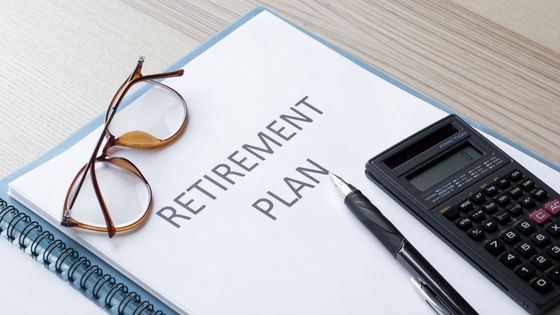Retirement planning has undergone many transformations due to the changing nature of challenges faced by the upcoming generations of the elderly. Increased life expectancy, growing self-dependency due to non-conjugal family structures, health crisis, increased risk of chronic health issues courtesy Covid 19, and uncertainty of the economy are only a few surface concerns. Additionally, the fact that companies are agitating away from fixed benefit plans to defined contribution plans which are more affected by market movements stresses the need for a 360-degree retirement plan.

Key Points to Remember
Zeroing in on a retirement plan requires a thorough analysis of your financial goals and whether the plan aligns with them or not. Here’s a checklist to help you navigate through retirement planning:
Make a Retirement Budget
You would want to maintain your lifestyle and continue with your hobbies, and charities. Along with this your daily expenses, bill payments, and healthcare overheads will also continue. Use a retirement calculator to help you estimate your regular expenses. Two things majorly affect the calculations.
First is the number of years you have in your accumulation phase. It is the phase when you are actively adding capital to your retirement funds. The longer you have higher the benefits of compounding.
The second is inflation. Inflation affects all your expenditures. As a general rule, overestimate inflation. Additionally, inflation in healthcare must be accounted for separately as this is one expense that might not be applicable today, but in later years, it piles up quickly.
Did you know?
India recorded the highest medical inflation of 14% among Asian countries in 2021. As a result, medical insurance expenditure grew by 25% in the following year.
Plan Lump-Sum and Regular Annuities
Your golden years must not remain dry spells of existence. Account for entertainment, travel, or celebrating milestones. Get a plan that offers you the dual benefit of having a lump-sum delivered to your account immediately after retirement and after every few years, along with regular income to carry out your daily expense.
Ensure Debt-Free Retirement
It is necessary for both your financial and mental health. Know your exact debt quantum so you can plan a course of action to clear all outstanding liabilities, well before you retire. There is nothing more worrisome than the fear of a liquidity crunch post-retirement.
Account for Taxes
Even if you have paid all your taxes throughout your earning years, your golden phase is not going to be free of them. Make sure while you put in the numbers in the retirement calculator that you have taken into account the lump-sum and annuity taxes. Additionally, your current income, any long-term deposits, etc. too will be taxed.
Extend Your Insurance
Insurance is undeniably the most important thing in times of uncertainty. Your retirement plan should accommodate the insurance needs of your later years. This gives a sense of security to the spouse. Having medical insurance for all your dependents will allow you to retire with a sense of peace. A good idea is to insure your assets to avoid any unpleasant shocks life may throw at you.
Opt for a Well-Rounded Retirement Plan
Retirement plans should be carefully chosen keeping in mind that all your needs will be fulfilled in the later years. You can choose to have an investment portfolio with aggressive to balanced to conservative risk capacity.Generally speaking, in the early years, you can have a more aggressive portfolio and move toward a conservative one as the retirement age closes in. This helps you to build your retirement corpus along with ensuring financial protection for your loved ones. Buy an insurance plan that gives you the flexibility to upgrade premiums as your income grows. You can also increase your savings with a top-up premium under a unit-linked retirement cum insurance plan (ULIP).
